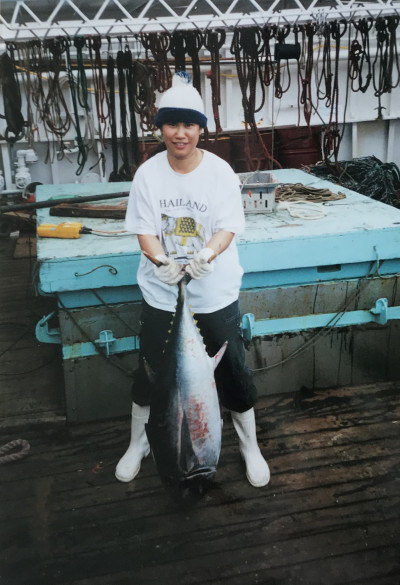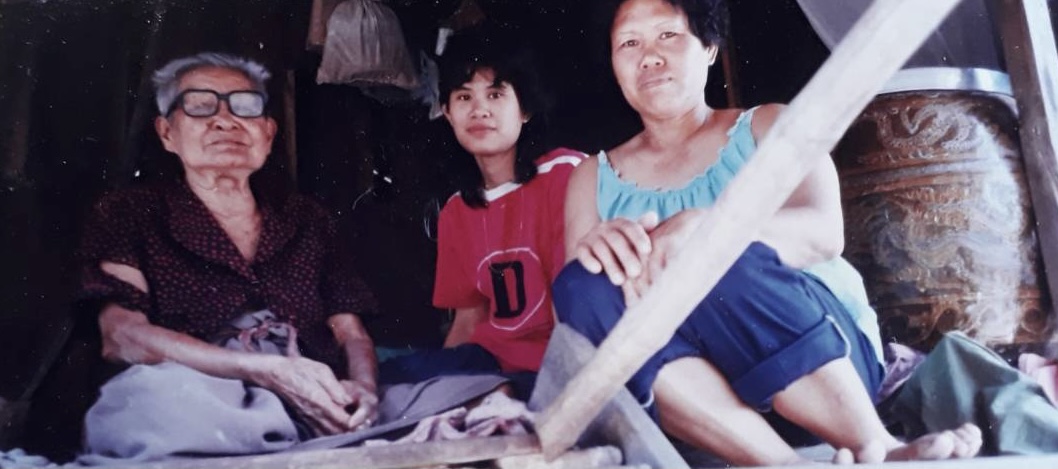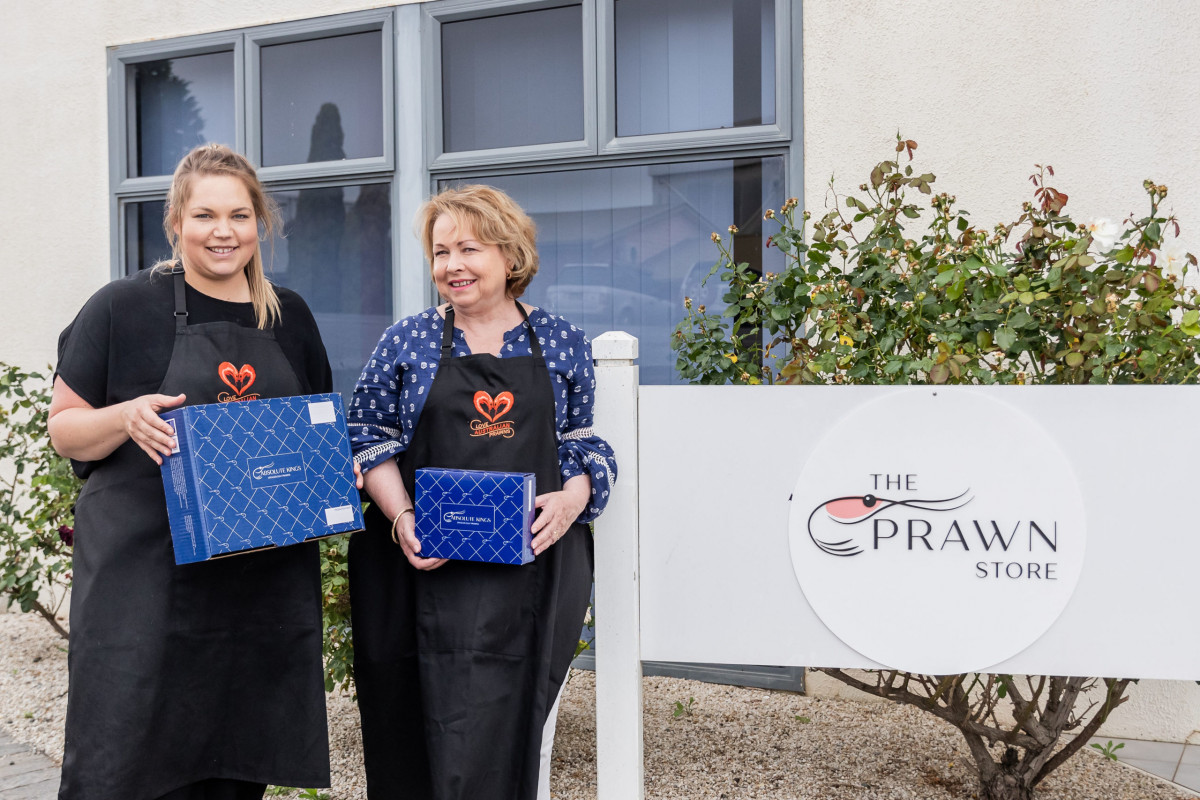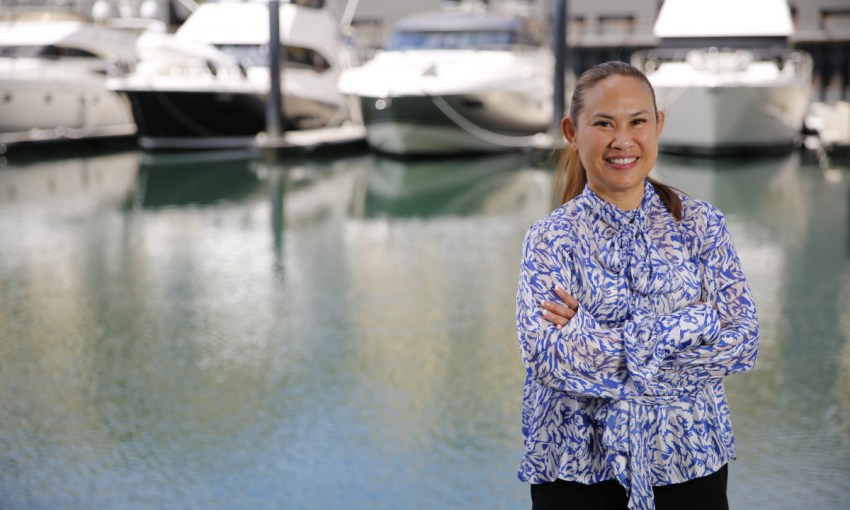The saying “teach a man to fish and you feed him for a lifetime” is becoming increasingly outdated, as women turn the tide in South Australia’s traditionally male-dominated fishing industry.
Meet the women making waves in the South Australian fishing industry
Taking the helm
When Port Lincoln’s pioneering tuna fisherman Dinko Lukin died in 2011, he entrusted his business to his wife Lukina. Unfortunately, she inherited an enormous debt during high interest rates on the back of the Global Financial Crisis, as well as ageing equipment and infrastructure that needed upgrading.
Lukina was left to sink or swim and some of Port Lincoln’s fishing industry patriarchs expected her to fail.
The only female chief executive in her industry, Lukina received offers to buy the business and it would have been an easy way out that many expected her to take. Yet, her work ethic and drive were underestimated.
Lukina was raised by her grandmother on her family’s rice field in Thailand while her single mother worked in Bangkok as a nanny.
“There are two women who made me who I am today – my grandma who wanted me to study well and my mum who wanted me to work hard,” she says.
“My mother is a very tough woman and a hard worker. When I was young, she gave me duties and pushed me to work. I didn’t like what my mum was doing at the time, but now I can see the benefit of the discipline she was teaching me.”

Lukina first came to Port Lincoln on a year-long teacher exchange from Thailand and during that trip met Dinko – a pioneer of the tightly-held wild-catch southern bluefin tuna industry.
He invented a netting system for catching wild tuna at sea and bringing them closer to shore to be ranched in net cages, where they are fed and fattened.
Lukina spent three seasons at sea with Dinko catching tuna in the Great Australian Bight.
She wanted to continue her late husband’s legacy and bravely decided not to sell the business.
“We owed so much to the banks, so I sold some of the business’ assets to reduce the debt. Interest rates were very high so I sold them at a loss, but I had to reduce the debt,” she says.
The tuna industry’s older generation didn’t take much notice of Lukina from the beginning, but over the years she continued to prove herself, learning and innovating.
First, she took a significant loan to repair a leaking refrigeration system.
Lukina also knew that her company’s ageing nylon nets were losing about 2500 fish each season, which equated to a $1 million loss every year.
She took out another loan to upgrade to stronger polyester nets and in the first season of using them, Dinko Tuna lost only 60 fish.
“Dinko always said that when you solve one problem, another problem comes along, so you never get away problem-free, you just have to prepare for it,” she says.
“It’s coming to 10 years now and I’m not just a tuna farmer anymore, I’m improving our products and value adding. I’m still here.
“Just because of the way things were done in the past, doesn’t mean that you have to do it the same way. The world is moving.
“You have to adapt and not keep doing things the way they were done 100 years ago. I’m proud of myself and my team.
“I can’t run the business by myself, I’ve got a good team that is still supporting me, and that’s the main thing.”
Many of Lukina’s staff have stood with her for a decade – a loyalty that can be rare in the industry. Dinko Tuna director and fisherman Michael Van Doorn has worked in the business since 1984 and has enjoyed working with Lukina since she has taken over.

“There was a number within the industry who expected her to fail,” Michael says.
“A lot of those guys, some who have passed away since, were very intimidating industry pioneers. You can imagine an owner who’s been in the industry for 50 years suddenly having a woman giving him suggestions on how to run or improve his business; it was unheard of.
“Lukina had to learn everything about the business from going out to sea, to the bookwork, to working in different currencies, to the refrigeration, and she learned all those aspects in a short space of time.
“She was very determined to continue Dinko’s legacy and since taking over she’s made the company stronger and built it up while taking innovation to a new level.”
Now, unable to sell tuna to the lucrative Asian markets, Lukina sees untapped potential closer to home.
“If Australian consumers were educated about how to prepare and eat southern bluefin tuna, all the tuna farms in Port Lincoln would not be able to supply the demand,” she says.
One of the keys to Lukina’s survival has been knowing her business inside-out. If someone doesn’t show up to work one day, she can step in and help get the work done.
“I don’t mind if I have to do hard work that’s dirty or difficult. I always say that is thanks to the two women that made me who I am today.”

Mother-daughter team
“People talk about gambling; well, I think fishermen are the biggest gamblers around. They go to sea in hope of catching fish and turning over some money,” says Anne Tapley, who knows well the ups and downs of the game having worked alongside her fisherman husband Graham for 35 years.
Originally from Adelaide, Anne moved to Port Lincoln where Graham’s family has fished for three generations.
While raising their children Joe and Meghan, Anne worked as a deckhand with Graham in the early ’80s.
Their daughter Meghan was always destined to work in fishing, having learned to walk on the family’s fishing boat.
When Meghan and her brother Joe were young, Anne and Graham locked up the house and lived aboard their shark fishing boat – appropriately named The Challenge – for more than a year, on and off, in order to survive the high interest rates and large overheads of that era.
“When we built the boat, the market for lobster and shark wasn’t great, so we had to cut down as many expenses as we could,” says Anne.
“I said right, let’s pack up the kids and live on board. That’s just what you do when you’re in business with family. Meghan learnt to walk on the boat, so that was her introduction to it all.
“It was probably one of the better times of our lives, back then.
“You could just go out fishing and enjoy the scenery. It was an uncomplicated lifestyle on the boat, there was always something to do and the days were great.
“When there was a bit of rough weather we’d go into anchorage and still be able to have fun going ashore with the kids. It was a great, simple lifestyle.”
Today, Anne and Meghan work together overseeing the shore-based operations of the family business, Australian Southern Exporters, while Joe and Graham still do the fishing.
In the past year, the mother-daughter team has also launched a new retail business The Prawn Store, selling fresh prawns at markets around the state.
It was an innovative idea after the family purchased a Spencer Gulf prawn fishing quota shortly before COVID-19 hit and left them having to come up with a new way to sell produce.
“Graham had always wanted a prawn boat, and when this one came up for sale we decided to buy it – but our settlement was March 28, when COVID hit,” Anne says.
“We couldn’t just sit back, we had to go to the customers. We had to make it fun for people and give the absolute freshest produce.”
Meghan, who’s also recently become a mother herself, took up the challenge and has worked over the past year, while innovating with creating ways for customers to order fresh prawns online.
“Meghan was in it up to her neck,” says Anne. “She’s been working hard and we’re very grateful that she took up a strong interest in it.”
The Tapleys operate two boats, including their original vessel The Challenge, and are one of 39 licence holders in the Spencer Gulf king prawn fishery.
“Meghan and I are a great team. We work side by side with each other and it’s just through sheer hard work and enjoying what we’re doing that we’ve got to where we are.
“For the kids, it’s a bit like a farm where they might sit on the tractor or the header. There’s not much difference, it’s just that we’re on the water,” she says.
“It’s plenty of fun working with Meghan; she’s taught me a few things while I’ve taught her.
“The prawn industry is a good industry and it’s almost coming to a point where I can hand over the business to her over the next 12 months.
“I’ll never fully retire, but it’s time Meghan takes over that role, so our son skippers the boats and Meghan looks after the shore base.”
Anne has served many roles on committees and boards, also advocating for Graham at fishing industry meetings while he’s at sea. In years gone by, Anne would be the sole woman at such meetings, but that’s no longer the case.
“It’s a regular occurrence, there’s a lot of women on the fishing committees,” says Anne.
She believes opportunities are there for women and men who are confident enough to give it a go.
“Everyone’s on an equal level, as far as I’m concerned. You give the respect to the people around you, and you get it back.”
This story first appeared in the March 2021 issue of SALIFE Magazine.



